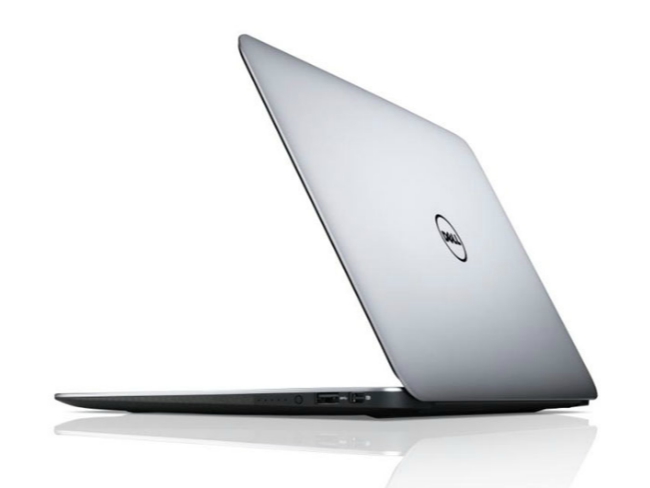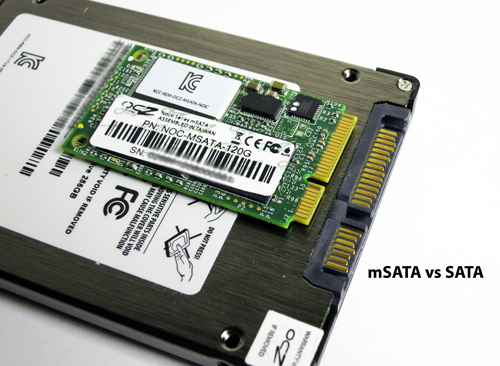Round-Up: 10 mSATA SSDs From Adata, Crucial, Mushkin, And OCZ
mSATA: Solid-State Responsiveness On A Tiny Card
The idea of a mSATA-based SSD plugged into your PC's motherboard is cool, but only insofar as the little drive is as fast as more familiar 2.5" models. And it needs to cost the same per gigabyte, too. Paying extra for a slower drive just doesn't make sense, even when it's a small SSD used exclusively for caching. With more and more standard SSDs falling under $1/GB, it's pretty easy to work at least 128 GB of capacity into most desktops.
But in an environment where extra physical space is a luxury (and in some cases not an option at all), mSATA might be the only way to get solid-state storage at all. Ultrabooks are a prime example. With very limited room, you're looking at one 2.5" storage device, an mSATA-based drive, or some combination of the two. Paying a little extra for the functionality of one fast boot drive and a slower disk for user data might be very well be worthwhile in such a compact form factor.
In case you missed Intel SSD 310 80 GB: Little Notebooks Get Big Storage Flexibility, where we first introduced mSATA nearly two years ago, the physical connector we're talking about today looks a lot like mini-PCIe. However, mSATA employs native SATA signaling. Fortunately, some of the boards currently available have the multiplexers necessary to take full-length mini-PCIe cards or mSATA drives in the same slot. From there, you face a performance challenge: some motherboards, such as Intel's DH61AG, enable mSATA at 3 Gb/s transfer rates, handicapping faster SSDs intended for 6 Gb/s connections.
All of that is to say pairing a platform to a compatible mSATA-based SSD is not always an easy exercise. Getting it right, however, can be rewarding. Beyond the interface's purpose as an enabler of caching (which is only of moderate interest to us nowadays), we really do like the idea of 128 GB or more of flash-based capacity and a 500 GB or larger mechanical drive for user data (like music, movies, and pictures).
Seeing that the selection of SSDs designed to drop into mSATA slots is pretty small, we rounded up as many as we could get our hands on from Adata, Crucial, Mushkin, and OCZ.
Get Tom's Hardware's best news and in-depth reviews, straight to your inbox.
Current page: mSATA: Solid-State Responsiveness On A Tiny Card
Next Page Test Setup And Benchmarks-
trumpeter1994 I just got a 256GB Crucial m4 msata SSD for the laptop I'm typing from. I love the thing its so nice to have in my y580Reply -
weatherdude Nice to see mSATA SSD's performing so well. Looks like laptops can now benefit from SSD's without having to compromise on storage space by giving up HDD's.Reply
Also the award is something new. I guess the "Recommended" and "Approved" awards are gone for 2013? -
cangelini weatherdudeNice to see mSATA SSD's performing so well. Looks like laptops can now benefit from SSD's without having to compromise on storage space by giving up HDD's.Also the award is something new. I guess the "Recommended" and "Approved" awards are gone for 2013?Approved is still one of the awards we're using. Recommended Buy is replaced by Smart Buy to better-convey the emphasis on value, and Best Of is replaced by Elite to better convey the emphasis on "this is the best damn product in the segment that we can recommend." Elites will continue to be something you rarely ever see, except when we want to make a point to honor a piece of hardware.Reply -
abbadon_34 Seems kinda underwhelming, seeing only 4 in the market, 2 of them years old. Ironically puts Intel's SSD and OCZ's in the same boat.Reply -
tsnor Excellent article. Nice. Much better than typical.Reply
Some discussion of trim, and the effects of using drives with a few days of use would have been good. The assumption is that the 'clean drive' performance tested is a good indicator of what people will see when they've used the drive for a month needs to be tested, the perforamnce order might change sharply. A 6 hour random write workload would go a long way to showing what to expect. Especially given the broken TRIM on SF 5 firmware and the slow speed of the fixes to existing SF drives. -
jaquith Yep, no argument the Crucial m4 mSATA 256 GB stole the show. It's both the fastest & cheapest -- what's the catch? I hope none.Reply
BTW - $179.99 or $0.70/GB (Promo Code: EMCYTZT2757) NewEgg - http://www.newegg.com/Product/Product.aspx?Item=N82E16820148613 Just noticed the sale from a NewEgg email. -
Onus I've got a 256GB Crucial M4 in the little clip on my Maximus V Gene as the boot drive. It's been performing flawlessly there for months.Reply
That's a bit crazy I know, but I had originally had it on the underside of an AZRock Z77E-ITX board until that board died. -
sna May I ask why is the Samsung 830 msata drive not present in this review?Reply
as I recall it outperforms the M4 and all the drives here.
-
edlivian oh great, now newegg and crucial are going to jack up the prices on the m4 line.Reply
I love the m4 drives, but now its going to get too much attention. -
jacobdrj snaMay I ask why is the Samsung 830 msata drive not present in this review?as I recall it outperforms the M4 and all the drives here.Because they are pretty much EOL with the 840 series out.Reply
I want to know when AMD laptops are going to start including msata slots... It is the budget laptop guys that would get the best benefit from msata with a standard HDD together...

